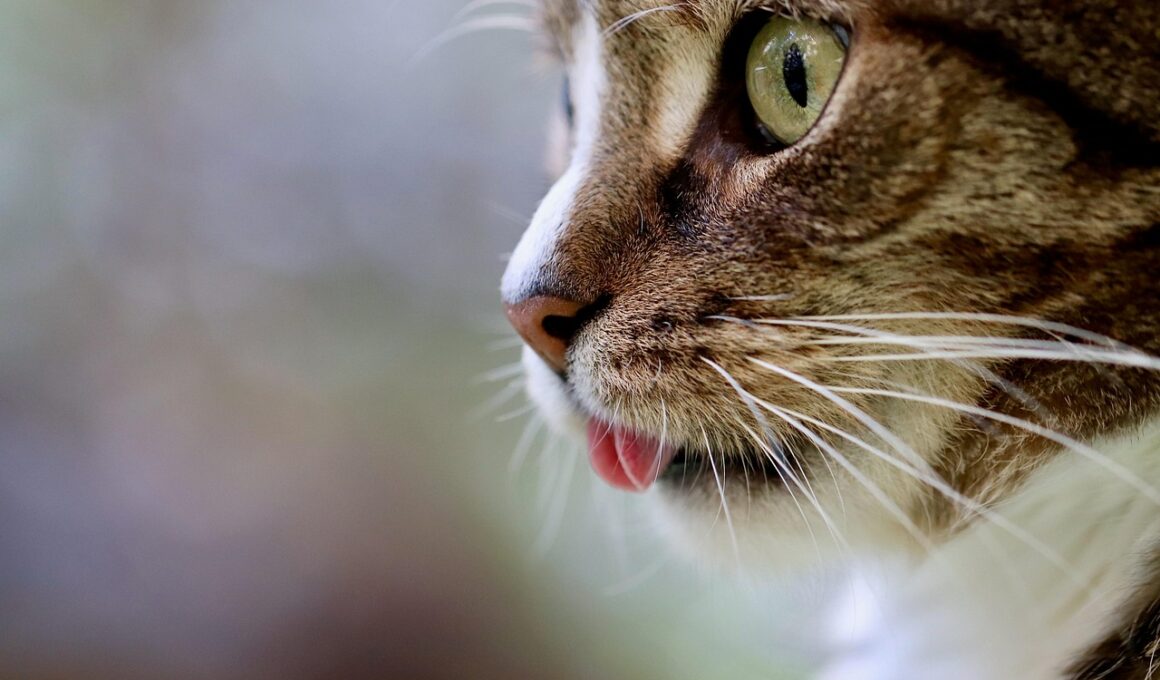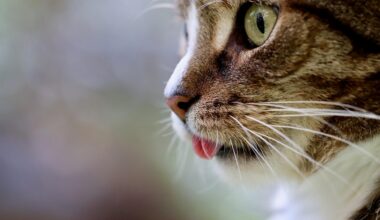Ensuring Long-Term Care for Senior Cats Through Estate Planning
As pet owners, ensuring the long-term care of our senior cats is crucial, especially in estate planning. Senior cats typically face a unique set of challenges, including aging-related health issues and the need for specialized care. Creating a pet trust is one effective method to provide for your feline companions after you pass away. A pet trust allows you to allocate specific funds for your cat’s care and appoint a caregiver to manage these funds. This legal arrangement can ensure that your beloved pet continues to receive the proper medical attention, food, and comfort they deserve. It is essential to select a trusted individual who understands the needs of senior cats and is willing to provide a loving home. Additionally, incorporating detailed instructions and preferences for your cat’s care can help maintain their quality of life. Providing detailed care wishes, including dietary preferences and anticipated medical treatments, is essential. Regularly updating your estate plan ensures that your senior cat’s needs will be met, reflecting any changes in their health or care requirements.
Moreover, including your senior cat in your will can safeguard their future and ensure their well-being. Many pet owners may overlook the importance of this step, but it is vital in estate planning. To legally designate a caretaker for your cat, it’s essential to name them explicitly in your will, alongside any resources for their care. This step provides clarity and peace of mind for both you and the caregiver. Additionally, it’s wise to set aside funds within your will that may assist in covering potential vet expenses and ongoing care needs. This can be a fixed amount or determined based on projected costs. Engage a trusted friend or family member who knows and loves your cat as their caretaker. Furthermore, consider establishing a healthcare directive for your pet. This document outlines your wishes regarding veterinary care, including any specific treatments or interventions you may or may not want for your cat. Planning thoroughly not only secures your cat’s future but also minimizes conflicts among your beneficiaries. Thoughtful estate planning ensures that your cherished feline will have a happy and secure life.
Preparing for Unexpected Changes
Life is unpredictable, and circumstances can change quickly; therefore, it is important to plan accordingly. Changes in health, lifestyle, or financial status may necessitate adjustments to your estate plan, especially concerning your senior cat. It’s vital to revisit and review your estate planning documents regularly. Make it a habit to assess your will and pet trust for necessary updates at least once a year or whenever a significant life event occurs, such as a move or change in relationships. Furthermore, incorporating a backup or alternate caregiver in your estate documents is a prudent measure. Should your first choice be unable to fulfill their responsibilities due to unforeseen circumstances, you will have a contingency plan in place. Training the backup caregiver about your senior cat’s needs, habits, and personality is key for seamless transitions. Discussing your estate planning with your family can also alleviate concerns around how your pet will be cared for. Ensuring everyone understands the provisions you have made can foster a sense of communal responsibility, increasing the likelihood that your wishes are honored.
Moreover, consider designating funds specifically for your cat’s ongoing care or future emergencies. This financial foresight can alleviate pressures on your designated caregiver, allowing them to focus fully on providing love and support to your senior cat. Alongside a pet trust, a savings account earmarked for your cat’s care can be a structured safety net. This account can grow over time and be managed separately from your primary finances, making it easier for the designated caregiver to access when needed. Additionally, outline your expectations clearly, detailing how funds should be spent in the case of emergencies, such as unexpected medical treatments or a change in dietary needs. Such clarity can prevent misunderstandings and disputes. Encouraging your friends and family to contribute to this fund can also ease the financial burden on your caregiver. You may wish to include explicit instructions for using the funds, such as allocating amounts for specific services like grooming, boarding, and veterinary visits. With these considerations, you can rest easier knowing that your senior cat will continue to thrive, even in your absence.
Consulting with Professionals
Understanding the legal aspects of pet estate planning can be overwhelming. Thus, consulting with professionals can assure that your arrangements comply with laws and effectively safeguard your cat’s future. Engaging an attorney who specializes in pet trusts and estate planning can provide invaluable insights into your options. An experienced lawyer can draft a valid and enforceable pet trust, ensuring that your instructions are carried out as intended. Additionally, you might consider seeking advice from a financial planner familiar with pet-related expenses and long-term care. They can help you determine the right amount of funding necessary for your senior cat’s well-being. Working together with both professionals not only brings peace of mind but can streamline the entire process. Consider hosting family discussions with your chosen professionals present to clarify any uncertainties regarding your estate plan. This collaborative effort allows for transparency and can reinforce the responsibilities designated for your pet’s care. Overall, the support of experts ensures that your beloved senior cat receives the assistance they need, paving the way for a secure and sustainable future.
Moreover, feeling comfortable discussing your estate planning with friends and family can foster a strong support network. Sharing your intentions looks out for your senior cat’s best interests and eases the burden on those who will make decisions on your behalf. Encourage open conversations about pet care preferences, important information, and feelings. Family meetings can help outline everyone’s responsibilities and expectations clearly, promoting unity during difficult times. Additionally, embracing the involvement of your loved ones can help create a unified plan for your cat’s future care, making it a collaborative endeavor. It’s beneficial to emphasize the emotional significance of these decisions. Your friends and family may gain a deeper understanding of why it’s essential to ensure your cat’s ongoing happiness and well-being. Offering to answer questions or organize discussions can enhance everyone’s trust and resolve towards the plan. Preparing your family for the responsibilities of pet ownership is instrumental; it increases the likelihood of adherence to your wishes. Ultimately, an engaged community surrounding your pet ensures they will continue to receive love and care throughout their life.
A Long-Term Commitment
Pet estate planning is a commitment to your senior cat’s happiness and quality of life. Acknowledging that our pets depend on us for care is a fundamental part of responsible pet ownership, especially as they age. As your beloved cat enters their senior years, the importance of ensuring they receive the best care possible becomes paramount. The emotional bond you share with your cat deepens the need for thoughtful estate planning. Establishing legal frameworks to protect your pet creates a lasting legacy of love and care, a testament to the bond you’ve shared. Remember, it’s essential to document all your wishes comprehensively, including any specific preferences you may have. This could range from dietary preferences to veterinary choices, ensuring your cat remains comfortable. Additionally, establishing a thorough medical history can guide caregivers in addressing potential health concerns as they arise. Using your investment of time and resources wisely will have incredible long-term effects on your cat’s well-being. Ultimately, taking these steps not only sets up your furry family member for a smooth transition but also allows you to live more peacefully.
In essence, estate planning is an essential aspect of responsible pet ownership, but often overlooked. Many cat owners fail to consider this crucial step in their lives. Not making plans can lead to uncertain situations where the needs of senior cats may not be met after their owner’s passing. By proactively addressing these concerns, you can ensure that your beloved pet will always receive the love and care they deserve. Remember, your bond with your senior cat continues even in their later years; therefore, planning for their future is an extension of that love. By providing clarity and a sense of security, you are making a statement that your cat’s well-being is a priority. Furthermore, engaging in discussions with your community about pet estate planning can raise awareness of its importance and encourage others to do the same. You are not only protecting your cat’s interests but also fostering a culture of compassion and responsibility among pet owners. Ultimately, ensuring sustainable care for your senior cat through estate planning can provide peace of mind that they will be cherished, no matter the circumstances.


